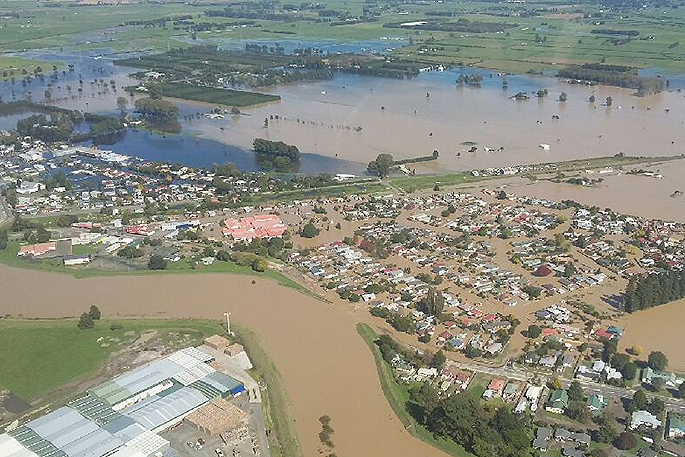A $20M co-investment from Central Government to help fund critical flood protection infrastructure, including stopbanks, floodwalls and pump stations, across the Bay of Plenty, is being welcomed.
In a statement released today, the Bay of Plenty Regional Council says the welcomed funding will lower rates for some targeted ratepayers living in flood-prone areas.
The news was announced yesterday by the Minster for Regional Development, Hon Shane Jones, at a Regional Growth Summit in Nelson.
The confirmation of co-investment comes off the back of the Budget 2024 announcement in May, where it was indicated that the coalition Government would be contributing up to $101.1M towards flood resilience projects nationwide through its Regional Infrastructure Fund.
Regional Council Deputy Chair Jane Nees says the regional sector had been waiting to hear the details after the Budget announcement and there is “a collective sigh of relief” at today’s news.
“Across the country, flood protection infrastructure is becoming increasingly challenging to fund. Like other businesses and organisations, we are facing the same economic challenges, with the costs to design, build, manage and maintain these assets continually increasing.
“However, the level of protection that these assets provide to vulnerable communities and critical lifelines – such as roads, hospitals and energy networks – far outweighs the upfront costs. In fact, studies show that every $1 invested in flood resilience infrastructure saves $8 in clean-up after a flood event.”
The funding will be a co-investment, which means the Regional Council will receive a Crown grant of 60% of the budgeted project costs. The remaining costs will be paid for through Regional Council rates, predominately rivers and drainage scheme targeted rates.
Deputy Chair Nees says while the grant will provide short-term relief to targeted ratepayers, the regional sector will continue to advocate for a long-term solution.
“With the Regional Council adopting its Long Term Plan in June, we are now working through what impact this grant will have on reducing rates for our communities, particularly those living in rivers and drainage schemes, as these ratepayers contribute 80% of the funding for flood protection assets.
“While we are grateful for this grant, relying on localised, targeted rates as a primary way to fund critical flood protection infrastructure is not viable, nor equitable. This is a challenge all regional and unitary councils face and finding a solution will take an all-of-New Zealand response as we collectively adapt to the challenges of climate change.”
The $20M funding will be split across three of the rivers and drainage schemes:
- Kaituna Catchment Control Scheme (replacing exiting flood infrastructure, such as the Ford Road pump station): $8,420,000
- Whakatāne-Tauranga Rivers Scheme (Project Future Proof, upgrading the stopbanks and floodwalls in Whakatāne CBD, for stages two, three and four): $10,690,000
- Waioeka-Otara Rivers Scheme (stopbank upgrades in and around Ōpōtiki): $1,200,000
This latest round of co-investment builds on the existing joint Resilient River Communities programme between regional and unitary councils and Kānoa, where post-Covid recovery funding has helped alleviate increasing costs to ratepayers since it began in 2020.
About Bay of Plenty Regional Council’s role in flood management:
Bay of Plenty Regional Council provides flood protection and drainage services through the management of five major rivers and drainage schemes across the region and the infrastructure assets within these schemes.
The purpose of these schemes is to provide flood protection to help minimise damage to local communities living in flood-prone areas.
While nearly 55,000 targeted ratepayers living in these scheme help fund the flood protection and drainage services, these schemes support the economic, environmental, social and cultural wellbeing of the whole region.
Find out more about the Regional Council’s flood protection works: www.boprc.govt.nz/flood-defences



0 comments
Leave a Comment
You must be logged in to make a comment.